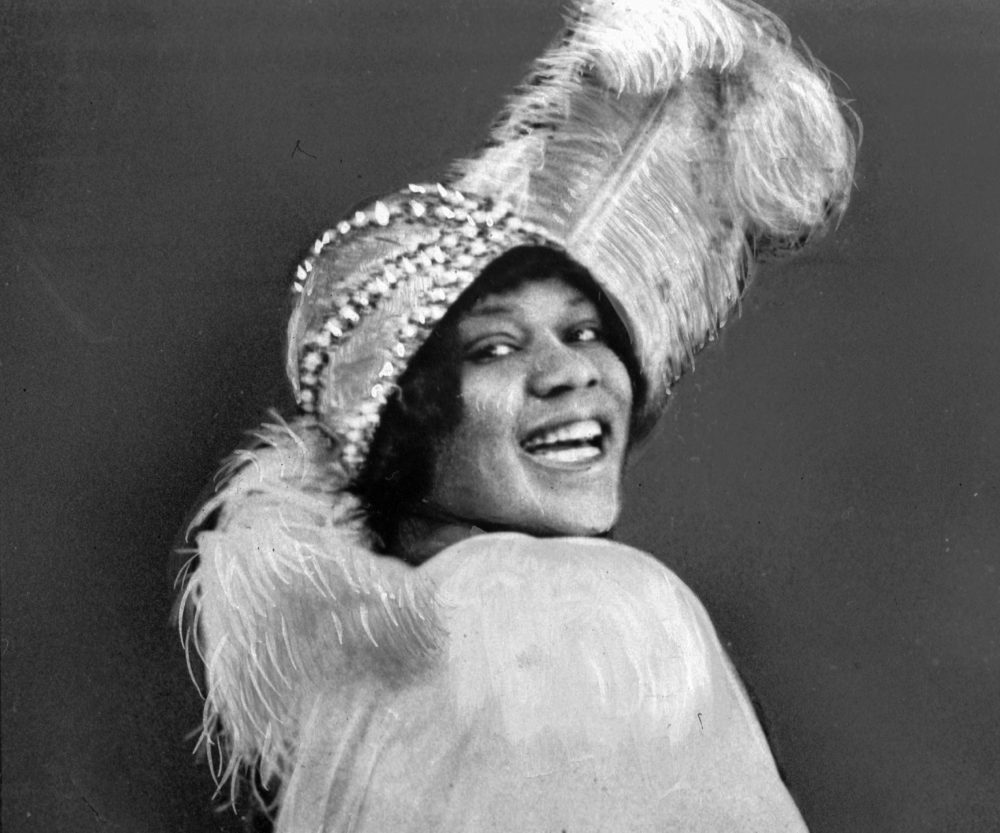Bessie Smith: The Empress of Blues

When we think of the Blues genre, we usually think of male singers such as B. B. King, Muddy Waters, or even Ray Charles. However, some of the first and most successful Blues singers were women. One of those women, Bessie Smith, got her stardom in the 1920s and 30s and became known as the Empress of Blues music.
The essence of Blues music tracks black folks lives not too long after the abolishment of slavery. Although our people were “free” to live without legal bondage, black people still had to deal with daily life which included love and sadness. Songs would often be heard with a singer talking about their relationships and how they felt and what they might do about it. Bessie Smith’s music was no different. With hundreds of thousands of copies sold, her best selling song called Down Hearted Blues, is what put her on the map. After listening to the song and reading her biographies, I discovered that the song closely related to her past and present life, while also foreshadowing the events for her life to come.
The first lines of Down Hearted Blues say “Gee, but it’s hard to love someone, When that someone don’t love you”. After touring during her early career in the south, she moved to Philadelphia and met a man named Jack Gee and the two were said to be married in 1923. In the song she continues to say that she used to be “crazy” about the man until he started to do her dirty. Her marriage in fact was known to be unsteady, and surely a child would only put more of a strain on their relationship. They informally adopted a 6 year old boy, who was the Jr. to her husband, but eventually that led to a custody battle and the child eventually lived with his biological father who unfortunately mistreated the boy. She then goes on to say “Trouble, trouble, I’ve had it all my days”. At this time she was likely reflecting on her childhood. Unfortunately, both of her parents were dead and so were two of her siblings by the time she was 12 years old. She and her remaining siblings ended up living with her aunt. As I continue to analyze these lyrics, it is becoming more and more evident as to why Bessie Smith would adapt to such a genre as blues because her life really reflected it. Audiences gravitated to her strong contralto voice as it portrayed the emotions she likely felt throughout her life.
Continuing through the song, she says next that she only loved three men, which included her father, brother, and “the man that wrecked” her life. There is irony behind this line. She was probably longing for love that she had never felt but wanted to feel because her father died shortly after her birth. She was one of seven children and we do not know which died and which were left after their parents passed. But even more unfortunate, she foreshadowed the rest of her life by saying that “It seems that trouble’s going to follow me to my grave”. It certainly did. Her career had its ups and downs. Her finances were struggling, some sources say it was due to the Depression, some say it was due to musical interests changing, and some say it was due to social changes and that her drinking may have contributed to it. Nonetheless, she kept touring. Unfortunately, on the way to a show, she was in a horrible car accident. She was ejected from the car and wounds led to her death some time later. Bessie’s career is definitely one to remember for all of musical history and black history in general. She served as a role model for other blues singers to come. Her lyrics in particular were powerful and reflective of her personal life, yet relatable to audiences. Through her words, she served as the epitome of Blues music for time to come.


